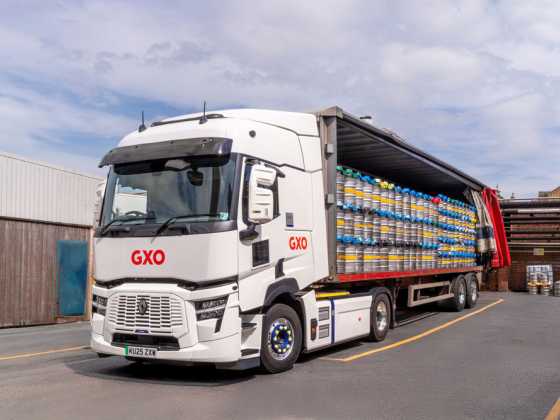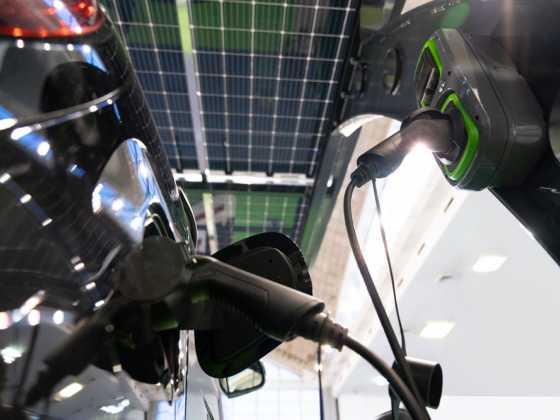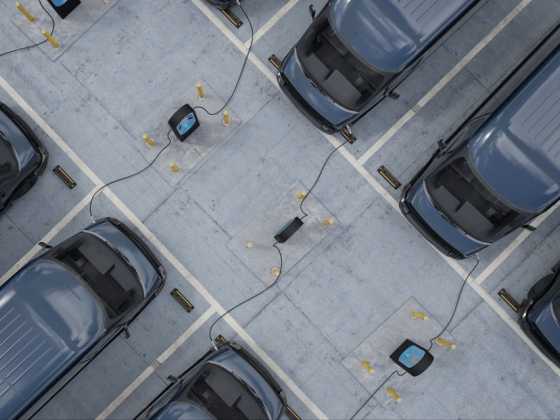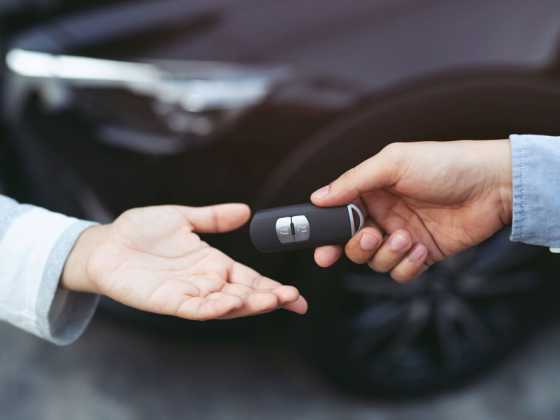GF roundtable: the business case for EVs
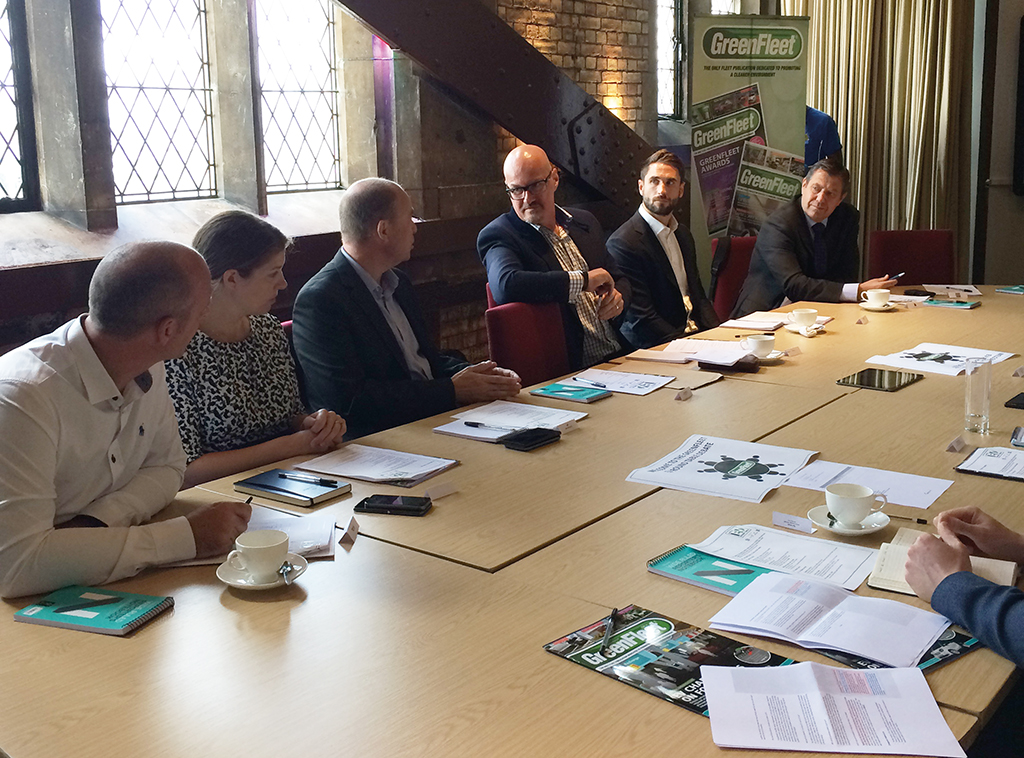
It is possible to make a business case for electric vehicles, without grants and other subsidies. This was the message from GreenFleet’s EV roundtable on 15 September at London’s Tower Bridge
Cost is often cited as one of the reasons for not buying an electric vehicle. As with all new technology, EVs come with a price premium, which the government has tried to ease with its plug-in vehicle grant. But it is possible to make electric vehicles work for a fleet, even without grants and subsidies.
Jersey Post has 30 electric Nissan e-NV200 vans and the organisation’s fleet manager Darren Moon describes the decision as a “no-brainer”.
He explained that Jersey does not get any of the government grants that are available in England, but even when paying full price, the business case stacked up.
Darren said: “We pay 1.8 pence a mile in an electric van and 30-40 pence per mile in a diesel. When you also take into account servicing and parts, the business case stacks up over a five-year period. It pays back in just under four years. Our fleet structure is a five year cycle so in just over a year we were in profit.”
Andrew Pickford from Leeds City Council, which has 42 electric vehicles on its fleet, agrees that it is possible to make the case for plug-in vehicles without subsidies.
He says: “You don’t need grants to get an electric vehicle. It’s handy, but beyond that, you can build an business case. That’s what we have done. We haven’t subsidised electric vehicles through any funding for our own fleet, we had to put in the work and go back and change the business case and procurement process. It was quite hard as a local authority to redesign how we assess business cases.”
The perfect storm
Political will, leadership, geography, public health – in terms of air pollution, and a good business case create the “perfect storm” for electric vehicles to work, the delegates agreed.
In Jersey Post’s case, Darren pointed out that the island is only a 9 by 5 mile island and so range is not a problem, as well as the fact that he had support from management.
Being in London, Chris Rutherford from London Ambulance Service NHS Trust sees the affects that air pollution has on people and highlighted the fact that some schools have to close their playgrounds on days when air quality is at its worst. Being an organisation that is supposed to help people, London Ambulance Service does not want to be part of the problem. This, as well as the fact that senior figures within the Trust are supportive and proactive with the agenda, means Chris and his team are making progress in greening the Trust’s fleet.
Final piece of the puzzle
Ben Wicks believes that as well as a good financial case, leadership and geography, the final piece of the puzzle is educating drivers. He says: “People can get into these cars set out to prove that they are not going to work.”
In most cases however, the fleet operators around the table say that once drivers have driven an electric vehicle, they are hooked.
Darren Moon shares his experience: “It’s a new technology and a lot of drivers had not driven an EV before, so I did have to talk them round.
But it only took a day or two for them to come back and say the vehicles were ‘awesome’. Within a year it spread through all our workforce how great the EVs were and when the next 15 arrived, I had drivers come up to me saying, ‘I want one of those’.”
Chris Chandler from Lex Autolease spoke about the work he did with BAE systems providing 48 electric vehicles at Portsmouth Naval Docks.
He said: “We got a demonstration vehicle for drivers to try and they soon spread the good news about the vehicles. By the time the actual vehicles had turned up, the drivers were all positive. They had an information pack on how to charge and this gave them comfort around the dos the don’ts. Since then, all we’ve had is positive feedback.”
It’s sharing these positive experiences that go a long way in spreading the word about electric vehicles, believes Ben Wicks.
Carbon targets vs air quality
The group raised the point that the move away from diesel may damage efforts to reduce carbon emissions. The delegates highlighted that global warming is still very much a global threat, while air quality is a local issue – and if everyone moves to petrol, CO2 could increase.
Lex’s Chris Chandler said: “The reduction in diesel and the big increase in petrol this year could see an increase in CO2. It’s important to remember that air quality is a local problem and we can’t throw away the global warming issue for specific areas local. We need to look at what local air quality issues there are alongside the global co2.”
Chris Rutherford explained how the Trust has contacted the Mayor of London asking what strategy they should adopt in terms of CO2 and air quality. He said: “We’ve got Emissions Analytics doing some work on our fleet to look at what the picture looks like if they are Euro 6 or all petrol.”
How to engage people into caring about air quality, and therefore taking action, is another issue. When frankly asked whether customers care about the air quality efforts of organisations, the consensus was that they have higher priorities, such as service delivery and cost.
Andrew Pickford discussed recent research on greener buses, which revealed that it is quality of services, fares and comfort that people care most about, rather than being transported in vehicles that are better for the environment.
Andrew also spoke about the research Leeds is doing into how people view the problem of air quality. He said: “As soon as you start talking about 40,000 people dying from poor air quality, people distance themselves. You need to make people aware of how it is affecting them now to make people care about the issue.”
Vehicles have been a scapegoat for years, but it is the people that drive them that are the problem, according to Chris Chandler. He explains: “People blame the government because their policies aren’t right, or they blame the vehicle manufacturers because they make the polluting vehicles. But it is the people actually driving them that are causing the problem.”
The group likened the air quality issue to the ban of smoking inside; people complained initially but changed their behaviour, and now, even smokers wouldn’t turn back. Event chair John Curtis asked whether in ten years time we’ll all look back and have the same view about our roads and how we all used to breathe in harmful emissions.
A legal problem looming?
The likelihood of someone taking legal action after suffering harm from air pollution could be a potential problem, according to John Curtis. He asked: “I wonder if one day there will come a time when people whose relatives have died early due to air pollution will take action against the government because they did not do enough to mitigate the risks when they knew that diesel was killing people.”
Andrew Pickford agreed, and said: “I don’t imagine it will be long until there will be some test cases whereby civil prosecutions will be raised against an employer for not taking action to protect employees from poor air quality, whether it’s a hotel doorman standing at the road side all day, or someone working in a bus depot.”
Other alternatives
The group raised the discussion about hydrogen as an alternative to battery electric vehicles and agreed that it is good solution because of the long range it gives vehicles and short refuelling time, but that it still has too many limitations. There are only a handful of hydrogen refuelling stations, although more are in the pipeline. Shell opened its first hydrogen refuelling at Cobham services on the M25 earlier this year and there are a few fleets now using this fuel, such as London’s green taxi company, Green Tomato Cars.
Matthew Morgan from the Phoenix Works explained that the limited re-fuelling infrastructure is because the cost of electrolysis plants are very expensive and that transporting hydrogen can be dangerous.
However, stations that generate hydrogen on-site from renewables is an impressive solution, according to Michael Cook from Babcock International Group.
Chris Rutherford raised the fact that the government has set aside £23 million, allowing companies to bid for the money to provide more hydrogen stations in the UK, which should improve the situation.
The electric vehicle roundtable discussion also covered the issue of grid overload, renewable energy, and mobility solutions. These topics will be covered in the next two issues of GreenFleet.
www.goultralow.com
www.thephoenixworks.com
www.lexautolease.co.uk
www.everwarmgroup.com



